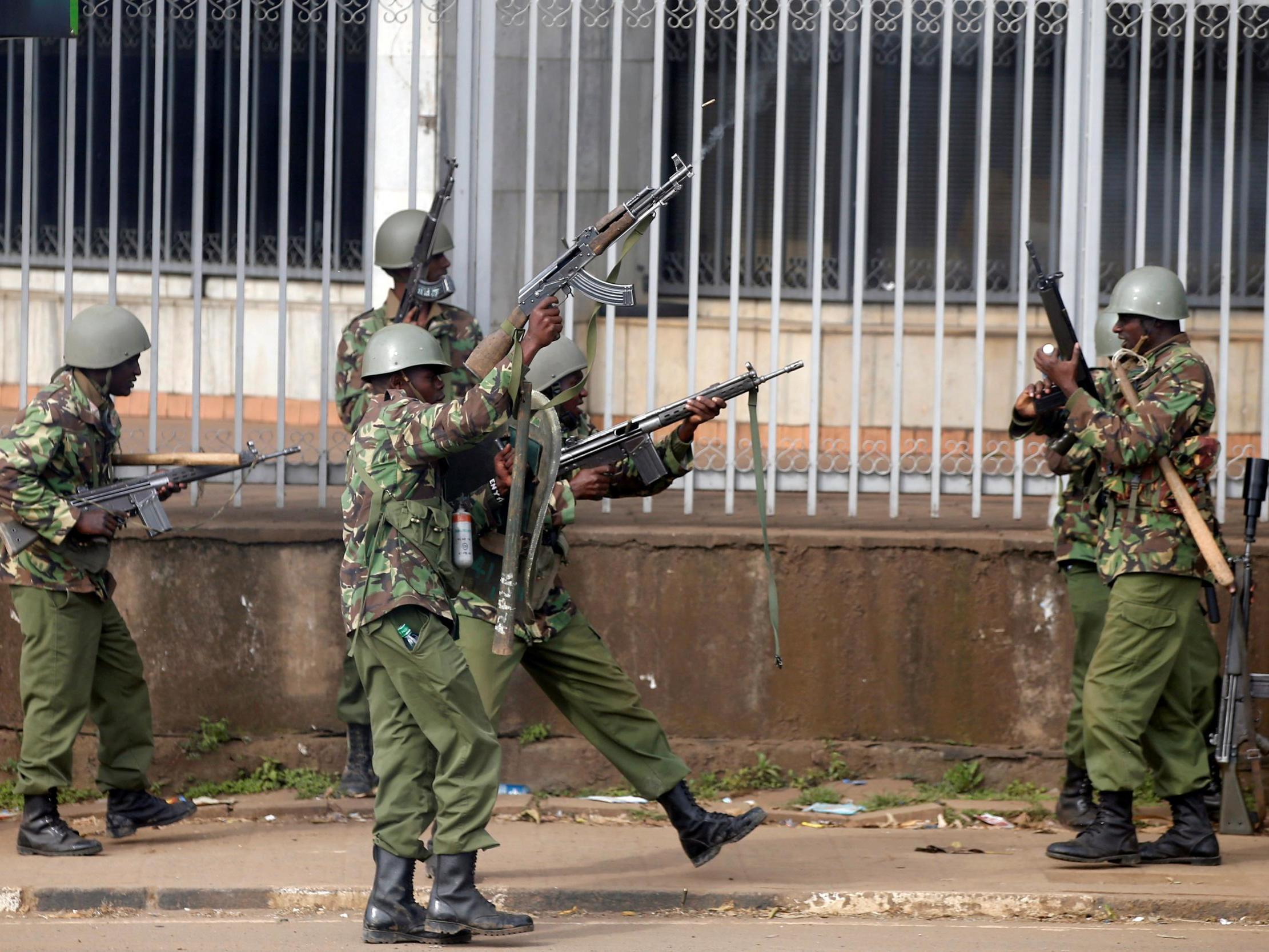'Police have not stopped killing young men': Officers shoot dead at least eight people in Kenya slums in past two months
'He surrendered to police, raising his hands and said he was on his way to work but one officer just shot him at close range in the chest,' witness says of one shooting

Your support helps us to tell the story
From reproductive rights to climate change to Big Tech, The Independent is on the ground when the story is developing. Whether it's investigating the financials of Elon Musk's pro-Trump PAC or producing our latest documentary, 'The A Word', which shines a light on the American women fighting for reproductive rights, we know how important it is to parse out the facts from the messaging.
At such a critical moment in US history, we need reporters on the ground. Your donation allows us to keep sending journalists to speak to both sides of the story.
The Independent is trusted by Americans across the entire political spectrum. And unlike many other quality news outlets, we choose not to lock Americans out of our reporting and analysis with paywalls. We believe quality journalism should be available to everyone, paid for by those who can afford it.
Your support makes all the difference.Police in Kenya have shot dead at least eight people in two months in the poorest regions on the outskirts of the nation’s capital, a human rights NGO has reported, amid calls for greater scrutiny over the use of force in the country.
New York-based group Human Rights Watch (HRW) found examples of a number of shootings at the hands of officers in Nairobi since Christmas Day 2019, when officers gunned down 19-year-old Peter Irungu and 20-year-old Brian Mung’aru.
Officials from the nation’s police force said officers did not use excessive force.
The first in a string of killings, which have predominantly involved young males shot at close range, witnesses said both men were on their knees pleading with officers for their lives.
A witness was quoted as saying that officers went on to remove bullets and spent cartridges from the scene.
The following day anti-riot police used live ammunition and tear gas to break up protests over their deaths in the Mathare slums where they had died, according to the NGO, leading to 10 people being injured and multiple arrests.
At a later protest in Kasarani on 15 January, this time over road conditions, 19-year-old transport worker Stephen Machurusi was shot by riot police, according to HRW.
A rights activist who witnessed the incident said: “On the way to work, he encountered youth running from police. He didn’t know there was a demonstration. He surrendered to police, raising his hands and said he was on his way to work but one officer just shot him at close range in the chest.”
The report added that a day later in Majengo, a slum close to Nairobi Central, 24-year-old Ahmed Majid was shot dead – with witnesses saying he had attempted to intervene as friend Yassin Athuman was dragged to the police station. According to HRW, officers had attempted to plant cannabis on Mr Athuman after he had refused to pay a bribe.
In resulting protests in the area the following day, a further four people were reportedly killed while protesting Majid’s death. The officer who is suspected of having shot down the 24-year-old was later arrested.
“Police used a lot of force to suppress the demonstrations”, an activist in Majengo was quoted as saying by the NGO. “They also used live bullets, which they were firing into people’s houses.”
Under Kenyan law the nation’s police officers have the right to use lethal force – but only when it is the only course of action to protect the lives of others.
Officers are also obliged to report to their superiors when they have discharged their weapons, while reporting any shots that lead to death or serious injury to civilian accountability organisation the Independent Policing Oversight Authority (IPOA).
However, the NGO said, police forces frequently show little cooperation with the body. Since its establishment in 2013 investigations have led to six convictions, while some 2,000 cases are currently on the IPOA’s books and 9,200 were known to have been received between 2013 and 2018.
Lucy Wambui, 27, was left with no legal recourse after her repairman husband Christopher Maina was killed in 2017 by police in broad daylight. She said activists had reported her husband's killing to IPOA but the watchdog told her last year that the time for investigating had lapsed.
"Police have not stopped killing young men," she said of the most recent shootings.
The body is understood to be investigating two of the eight recent killings. Police have not independently confirmed all the deaths reported by HRW.
Otsieno Namwaya, senior Africa researcher at HRW, said: “Kenyan police are shooting young people dead in total disregard of the rules for the use of force.
“Kenyan authorities should end these unlawful and unjustified killings of unarmed people and bring officers involved in the killings to justice.”
In response to the HRW report, Kenyan police said they do not use excessive force.
"We have cases where police officers have killed... they have been arrested and charged in a court of law for the offences they commit," police spokesman Charles Owino said.
Join our commenting forum
Join thought-provoking conversations, follow other Independent readers and see their replies
Comments